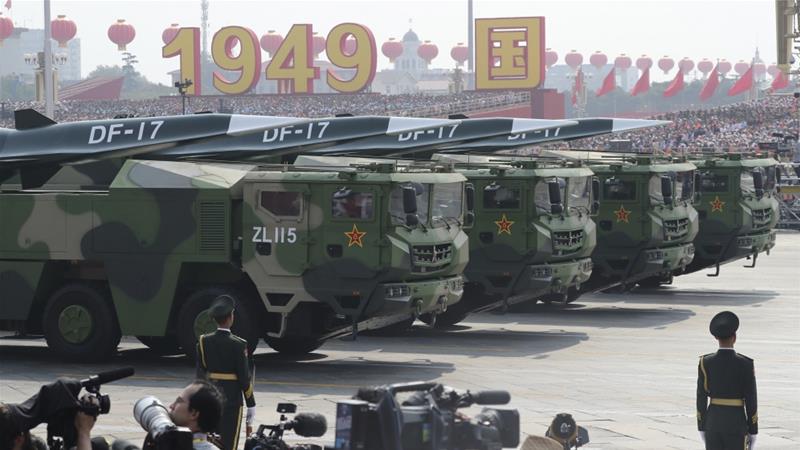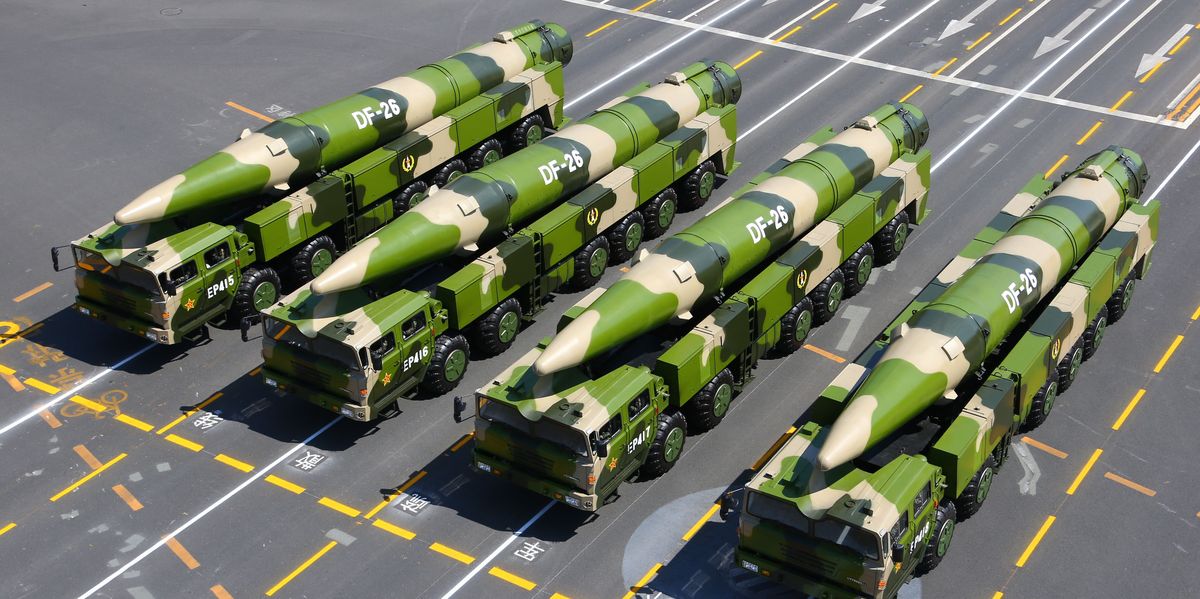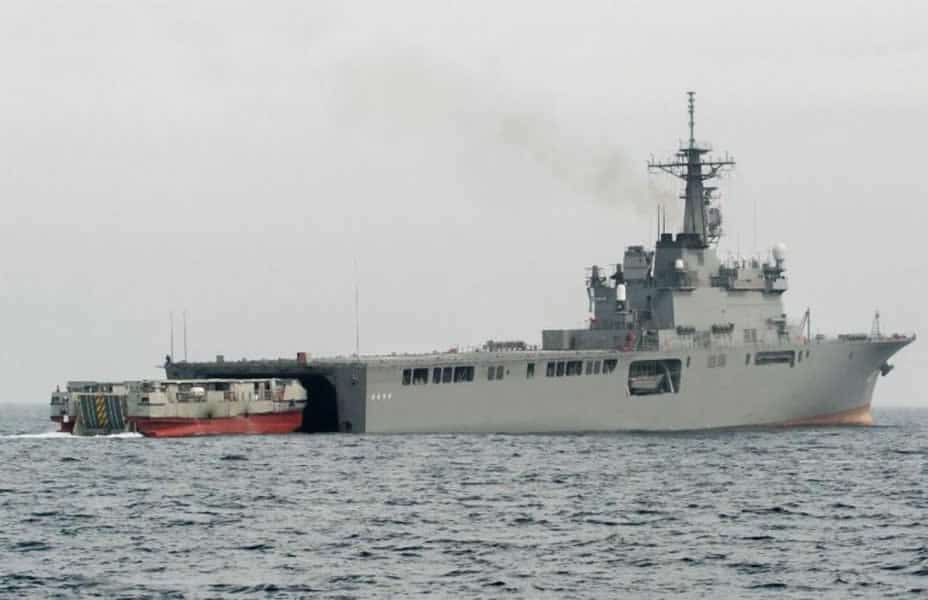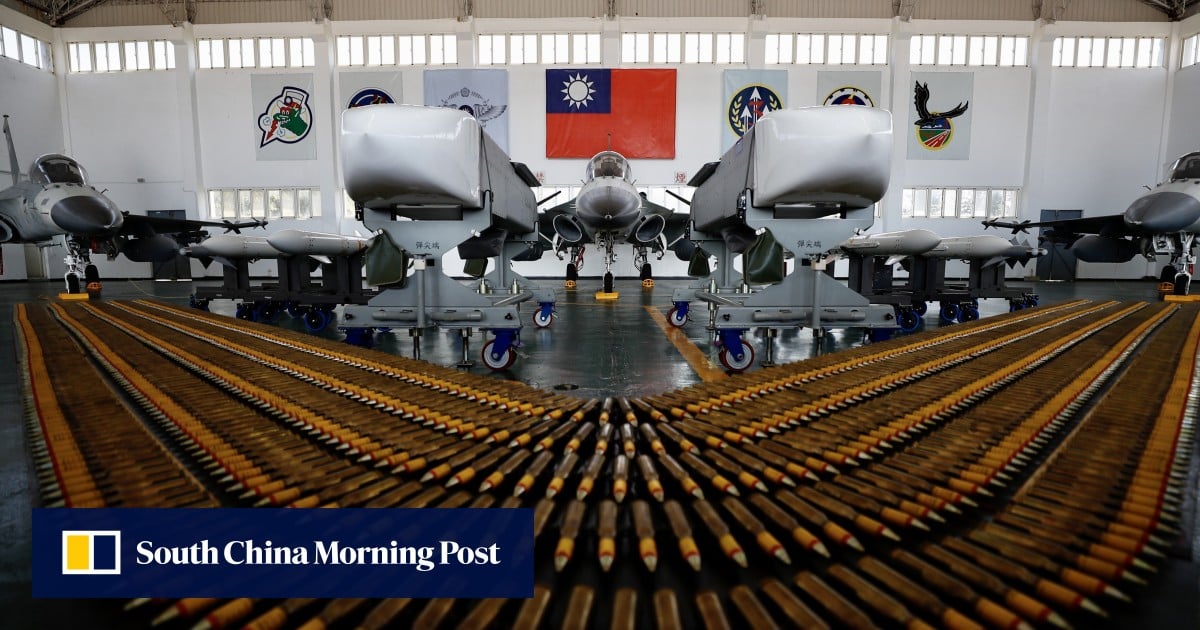@Musashi_kenshin, I don’t understand why you buy into this Taiwanese DPP bullshit. If the Taiwanese want to provoke a war, they can fight it by themselves. The 1992 consensus is an agreement on how the 2 sides can disagree. But no, the DPP have to trash talk, without investing in actual military capability.
...continued from above:
3. Objectively speaking, anyone with a basic knowledge of geo-politics and understand international relations issues as a diplomat of substance, like Antony Blinken or Bilahari Kausikan (as a former diplomat), would know that Taiwan is at fault — due to the toxic domestic politics occurring there. Taiwanese political trash talking against China has real world consequences. If the Taiwanese want to trash talk, I say talk only after building 8 submarines, not before. Trash talk after the 66 F-16Vs have been delivered, not before.
4. Antony Blinken, U.S. President-elect Joe Biden's pick for secretary of state, a former director of the Taipei Office of the American Institute in Taiwan (AIT) knows that:
(a) Taiwan is at fault and needs to dial it down; and
(b) pressure point Taiwan is a useful tool of leverage for the US to get cooperation from China — after 20 Jan 2021, I fully expect Biden’s team to privately tell President Tsai Ing-wen’s (蔡英文) to dial it back.
Edit: Points 5 to 9 added to provide a naval context, to prevent this from becoming an off-topic sea blind discussion (and to help readers understand the often unspoken Japanese Navalists’ collective concerns and the Chinese reaction to such thinking by their investments in the PLA(N)’s fleet of ships and their rapid growth of the amphibious capability of the PLA Marine Corps).
5. If the now-still-unthinkable were to occur and Taiwan and China enter into direct armed conflict, Northeast Asian SLOCs security would not be the only exploitable vulnerability of the JMSDF, the ROK Navy and the US Navy’s 7th Fleet, combined. Taiwan would then be the perfect basis for the PLA(N) and the 20,000 strong PLA Marine Corps to island-hop through the Japanese controlled Ryukyu island chain – which is much closer to Taipei and Shanghai than to Tokyo – and quickly reach Okinawa or beyond. Given that Japan only has a 3,000 strong Amphibious Rapid Deployment Brigade, it wouldn’t be excessive to consider a Chinese takeover of Taiwan or the Ryukyu island chain an
existential national security threat to Japan.
6. As Ian Easton explains: PLA intentions and plans for a conquered Taiwan are made plain in an internal document, The
Japanese Air Self Defense Force, a handbook studied by mid-career officers at the PLA Air Force Command College in Beijing. The stated purpose of the text is to help Chinese pilots and staff officers understand the strengths and weaknesses of their Japanese adversaries. Buried amidst hundreds of pages of detailed maps, target coordinates, organizational charts, weapons data, and jet fighter images are the following lines
:
As soon as Taiwan is reunified with Mainland China, Japan's maritime lines of communication will fall completely within the striking ranges of China's fighters and bombers...Our analysis shows that, by using blockades, if we can reduce Japan's raw imports by 15-20%, it will be a heavy blow to Japan's economy. After imports have been reduced by 30%, Japan's economic activity and war-making potential will be basically destroyed. After imports have been reduced by 50%, even if they use rationing to limit consumption, Japan's national economy and war-making potential will collapse entirely...blockades can cause sea shipments to decrease and can even create a famine within the Japanese islands.
7. But the problem posed by Chinese control of Taiwan is not really limited to the shipping that passes through the Taiwan and Luzon Straits. American naval war planners understand the importance of the "1st Island Chain," a group of islands that keeps the PLA Navy and PLA Air Force hemmed into the East and South China Seas; and these islands include the Philippines Archipelago, Taiwan, the Japanese Archipelago, and the Ryukyu Islands.
8. In times of peace there is little to stop Chinese naval and air forces from crossing out into the Pacific as they wish, but in times of war things will be different. The Japanese:
(a) have been quietly stocking these islands close to Taiwan with anti-ship and anti-air missile units — which includes the
upgraded Type 12 surface-to-ship guided missiles (that are truck mounted) whose range will be extended from 200 km to 900 km (with the final goal of 1,500 km). According to media reports, a Kawasaki P-1 MPA equipped with 4 air-based Type-12 missiles (it can carry up to 8 missiles) made its first test flight from a JMSDF Air Facility Atsugi on 10 Feb 2020. The improved air-launched variant of the latest Type 12 anti-ship missile;
(b) have decided in 2017 to acquire the 280km range Norwegian JSM (for its 147 F35A/Bs) and the 560 km range AGM-158B JASSM and AGM-158C LRASM for its 98 upgraded F-15Js; and
(c) in Dec 2020, decided to spend
33.5 billion yen (US$322 million) to develop Japanese stand-off missiles, due to the significant improvements in other countries' early warning and control capabilities. Further, MHI was awarded a 8.9 billion yen (US$85 million) contract for the the development of the improved ASM-3 to be carried on the F-2. The development of the improved ASM-3 (above Mach 3) will continue even after the ASM-3A goes into mass production. Thus the ASM-3A is considered to be a stop-gap solution to counter China’s naval threats; and the development of the improved ASM-3 will be carried out from FY2020 to FY2025. Taku Otsuka, head of the LDP's National Defense Division, told reporters that the possibility of Japan using the missiles to strike an enemy base is a separate issue.
Over time, these Japanese A2AD deployments would to keep the PLA(N) bottled within the 1st island chain will not only grow but serve as lilly-pads to push Japanese A2AD forces into dispersal locations to evade the waves of Chinese missile salvos. Given this scenario, it would be difficult to imagine a significant number of Chinese commerce raiders slipping out to prey on Japanese shipping outside the Taiwan Strait as long as they have to slip between hostile Japanese and Taiwanese island bastions.
9. The traditional Chinese strategy of engaging Japan while at the same time working to undermine its control of the Senkaku/Diaoyu islands has hit a wall. Chinese Foreign Minister Wang Yi sought to present a friendly and proactive face during his 24 Nov 2020 visit, but in Japan the visit will be mostly remembered for the controversy at the joint press conference — after which Japan’s Foreign Minister Motegi had to forcefully
denounce the offending Chinese remarks in front of the Diet and to emphasize how clear he had made the Japanese position on the issue. The Japanese press, for its part, was happy to emphasize the incident without providing context or
analysis of Wang’s exact remarks. The current atmosphere in Tokyo leaves little space for a nuanced and moderate debate on policy toward China. Instead, calls to adopt more drastic measures to defend the disputed islands are becoming more urgent. If the relationship continues on its current trajectory, hopes for a successful state visit by President Xi Jinping, which were reasonably high one year ago, will grow ever more faint.
10. A real Chinese attempt to solve the Taiwan issue by force remains unlikely till after 2049. President Xi currently has
a lot on his plate, especially in the wake of the coronavirus outbreak, a rise in diplomatic acrimony between China, and the U.S, India, and Australia, has taken centre stage in Asia. Further afield, European Union member states are also heading towards adopting a tougher attitude on the strategic challenge that China’s growing assertiveness represents. The PLA is also well aware of the fact that invading and controlling Taiwan are two different things entirely.


+Yingji-62+Peoples+Liberation+Army+Navy+export+pakistan+coastal+defence+missile+system+china+chinese+(1+(2).jpg)

+Yingji-62+Peoples+Liberation+Army+Navy+export+pakistan+coastal+defence+missile+system+china+chinese+(4).jpg)




